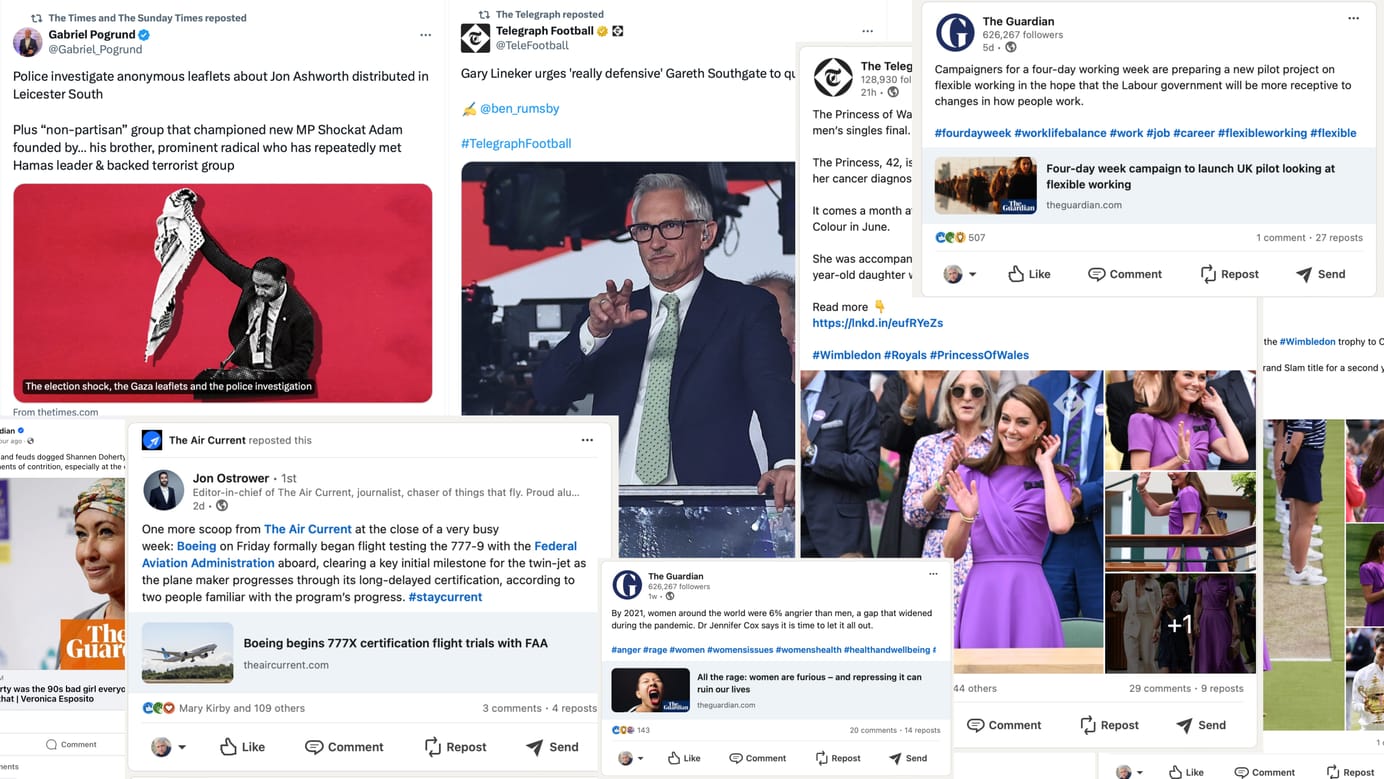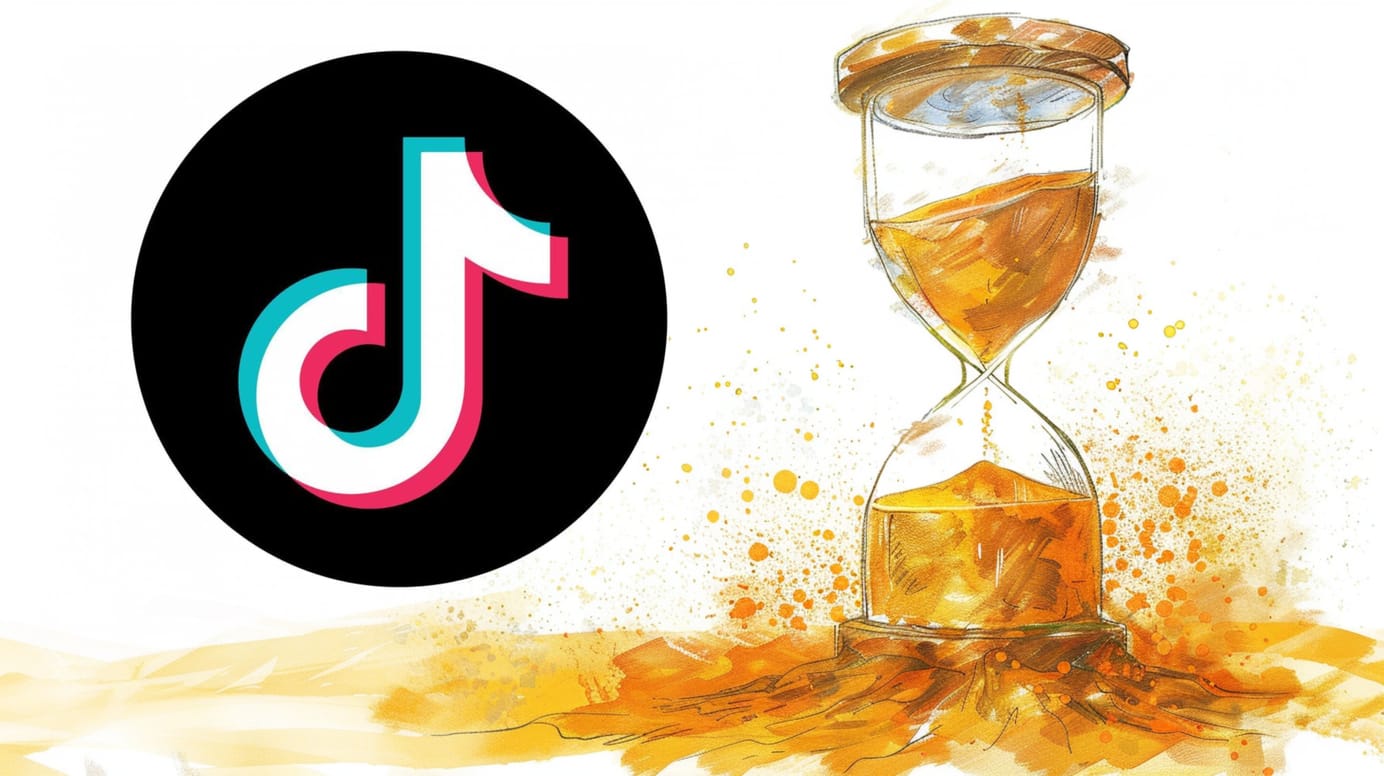
LinkedIn, TikTok and the dawn of the algorithm wars
LinkedIn, the dull elder sibling of Facebook and Twitter, is slowly finding new relevance. But the war over TikTok points the way to social media's future.
Friday’s piece on Apple News+ hasn’t met with universal agreement:
You raise some good points about the WSJ, but I don't necessarily agree with you! Some points like this: "we would *hope* to graduate to a paid WSJ subscription over time". Hope is great but a year on, what's that funnel ACTUALLY looking like?
— Esther Kezia Thorpe (@EstherKeziaT) September 12, 2020
(Follow the thread for Esther's points of disagreement and my responses)
I maintain that the underlying principle is right: it’s never wise to write digital tools off as failure until they are actually shut down (RIP Google+). We need as wide range of audience acquistion points as we can manage. The fewer we have, the more dependent we are on tech companies whose values do not align with ours.
History makes it clear that it's unwise to write products off, especially ones as young as Apple's offering. For a long time my go-to example of this was Reddit. Over a decade ago, it was written off as the site eclipsed by Digg. But Reddit remains a cultural force, and who visits Digg these days?
The LinkedIn Renaissance
LinkedIn is shaping up to be another good example. It’s the oldest of the social networks, pre-dating both Twitter and Facebook, and yet is often written off by social media professionals. This morning’s issue of Marie Dollé’s In Bed With Social newsletter is a case in point:
History repeats itself: like Amazon, Craigslist, eBay or, right now, Reddit — it's time to unbundle. LinkedIn shares the splendors and miseries of all these tech giants. Its digital platform has reached a climax, stimulating and training a plethora of new competitors — competition that intends to devour pieces of the existing platform by positioning itself in specific verticals, creating a user experience or business model much more adapted to the unique attributes of that vertical. This is precisely what threatens LinkedIn.
Sure, one day those giants will fall. But today is (probably) not that day. Her list of interesting startups is worth keeping an eye on, but the network effect is powerful, and it is difficult to dislodge people from a well-populated network. I suspect LinkedIn will remain a social behemoth for a while to come.
More to the point, LinkedIn appears to be proving an effective additional source of audience conversion for one publication: The Economist:
Of social platforms, LinkedIn is the publisher’s third-biggest subscription driver. The amount of organic traffic that LinkedIn refers back to The Economist site — where people can register to access several articles before subscribing — has doubled year over year. And subscriptions to The Economist generated organically from LinkedIn have tripled year-on-year, although it wouldn’t say from what base.
No figures, as usual, but the thing worth noting here is that The Economist is clearly working on a diverse range of acquisition sources; LinkedIn is number three on that list. This reinforces my point on Friday: a smart publication casts its net widely for new sources of subscribers.
If you don’t, you’re in hock to the whims of a single company and its algorithmic will.
Habit-forming stories
There’s some useful detail about The Economist’s social team’s approach, too:
The Economist’s social editors, a team of nine who work across all social platforms and are based in London and New York, select nine stories to go out on LinkedIn each day, scheduled for similar times to help build audience habit.
Worth your time:

Pay to link coming to Instagram?
While we’re on the subject of algorithmic control, Instagram is a perfect example of their algorithm having a vice-like hold on the user’s attention, and not allowing anyone else to benefit. No links in captions, hence no traffic, bar the little you can garner with a plaintive cry of “link in bio”.
That might be about to change — for a price.
This patent outlines a payments function where when you to put a URL in a caption, a pop-up appears asking if you'd like to pay $2 for the ability to activate the link. That sounds like it could get very costly if you'd want to add links to every post, but this is probably welcome news to Facebook investors.
And it might be worth it for publishers. But it’s another example of algorithmic control of attention turning into a bottleneck that the tech companies can charge you to pass through.
TikTok: the first battle in the algorithm wars
Finally, I don’t really have a lot to add to the TikTok “sale” story. Rather than actually selling TikTok, Bytedance appears to have agreed a technology partnership. It’ll be interesting to see if this is enough to assuage Trump’s concerns (although one rather suspects that as long as he can claim it as a win, he’ll be happy).
But, with Bytedance and China making it absolutely plain that the TikTok secret sauce — the algorithm — isn’t up for sale, this is clearly merely an opening salve. Whoever controls the algorithms, controls how people see the world.
People used to mock social media as being “photos of people’s lunch”. And now it’s a geopolitical battleground.
As I said, never be too quick to dismiss digital tools.
Sign up for e-mail updates
Join the newsletter to receive the latest posts in your inbox.











